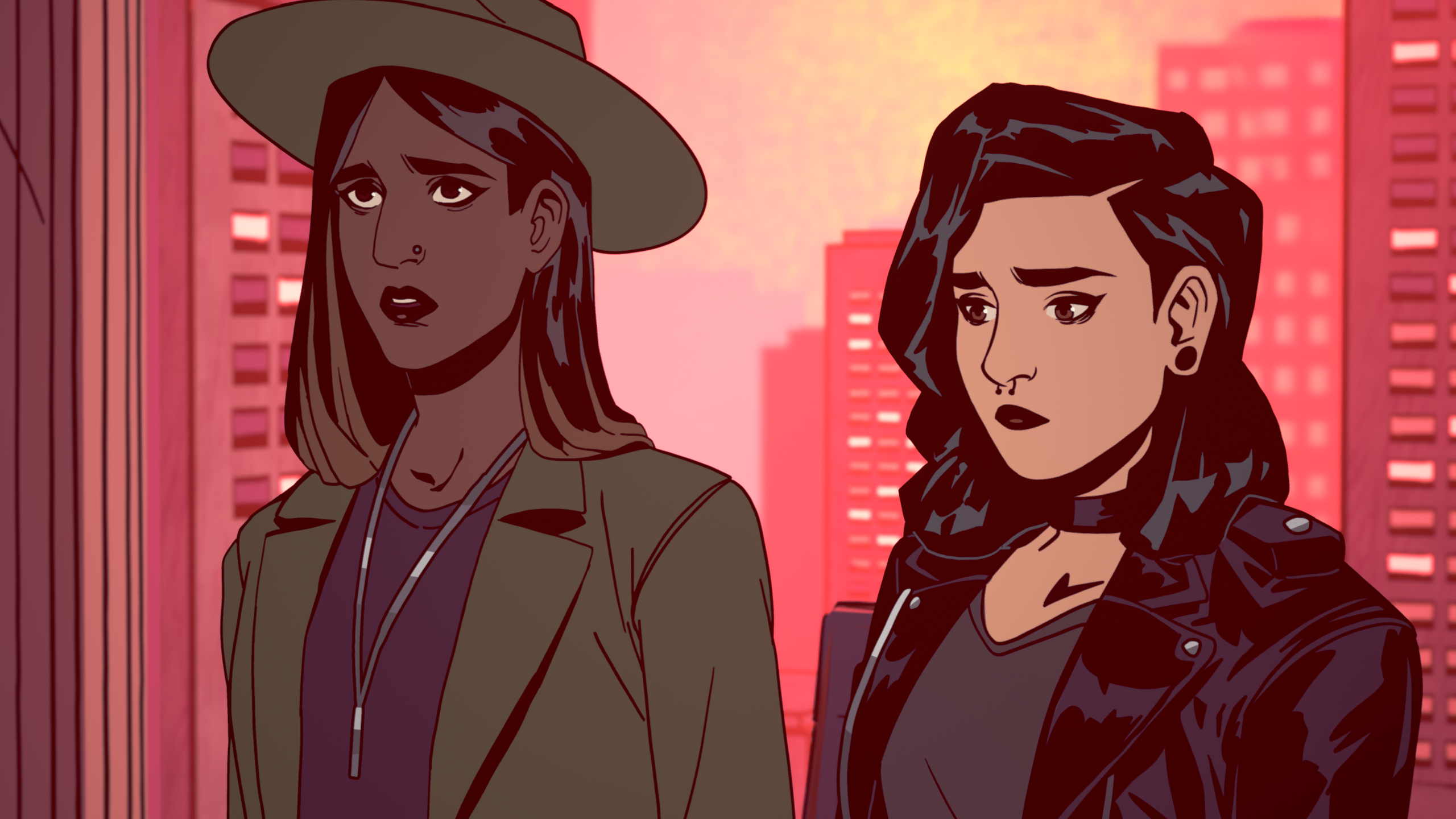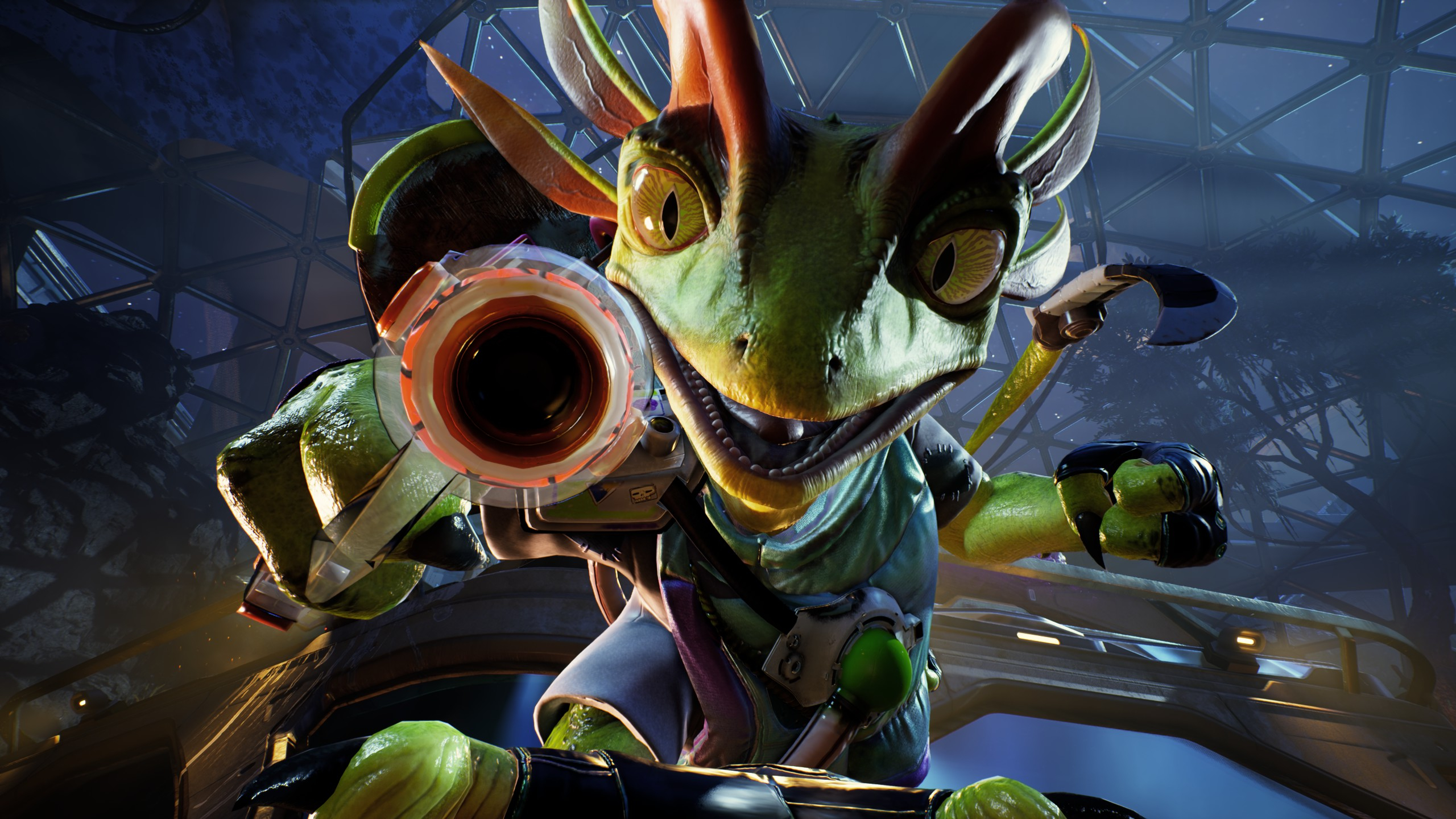Our Verdict
A genuinely thrilling, occasionally heartbreaking tale that shines a new light on well-known Greek gods. The musical aspect makes it one of the most unique visual novels you'll play, but its inconsistency in quality lets it down.
PC Gamer's got your back
What is it? A musical narrative adventure steeped in Greek mythology.
Release date August 10, 2023
Expect to pay $30/£25
Developer Summerfall Studios
Publisher Humble Games
Reviewed on Nvidia GeForce RTX3070, AMD Ryzen 7 2700X, 16GB RAM
Steam Deck Verified
Link Official site
I've played dozens of visual novels and narrative adventures in my time, and I've still never experienced anything like Stray Gods: The Roleplaying Musical. It's a game that delivers its branching narrative through song rather than the spoken word, boasting a talented cast of voices from Laura Bailey and Troy Baker to Ashley Johnson, Felicia Day and Rahul Kohli. For the most part, it's a wonderfully engaging adventure—even if it is unfortunately let down at points by a lack of attention to detail.
Stray Gods drags Greek mythology into the modern-day world, putting you in the shoes of college dropout Grace as she finds herself intertwined with gods like Apollo, Aphrodite and Athena after receiving the powers of Calliope, the world's final Muse. Thing is, she gets these powers because Calliope has been straight-up murdered, somehow finding her way to Grace's doorstep to pass her gift on before dying.
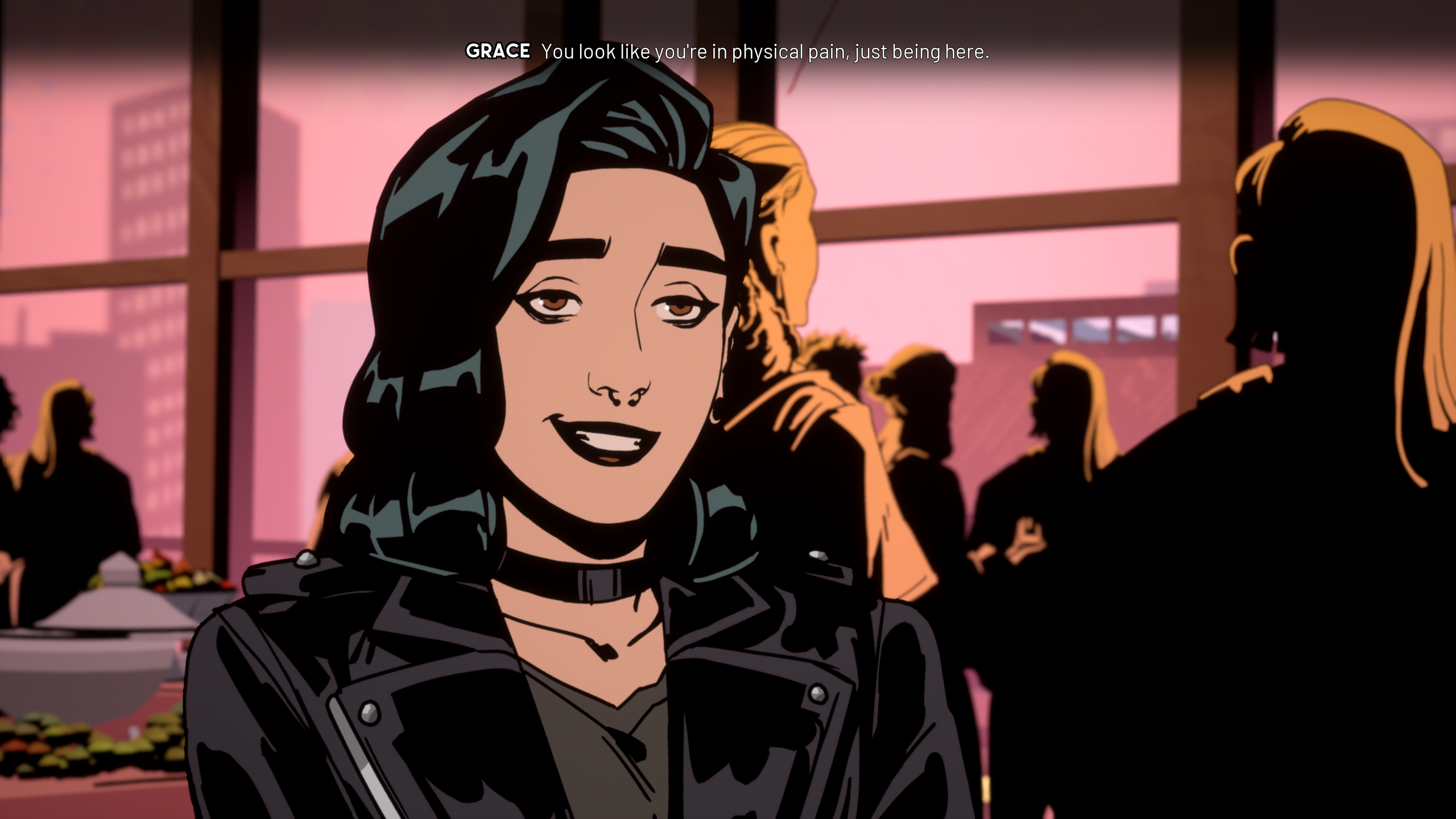
It doesn't make her look very good, and understandably a couple of the gods think she's the reason Calliope croaked. That's where the Muse's power comes in handy, as Grace can cause people to break out into song and spill their emotional guts, helping to solve just who is behind Calliope's death while clearing Grace's name. A handful of them can even be romanced along the way, if that's your jam.
The musical numbers are peppered throughout Stray Gods, and it's where the bulk of the decision-making can be found. Time-sensitive choices appear throughout each song, letting me tackle the next line in different ways—I can be charming and empathetic, cold and clever, or hot-headed.
Each approach can steer the direction of the song, too. A charming choice can make the song more delicate, while a more brute-force attitude offers a more appropriately harsh beat and lyrical flow. It can make the same song sound totally different depending on the choices you make, and I found that even when I was frequently switching tones in the same song, it flowed together surprisingly well with few hiccups.
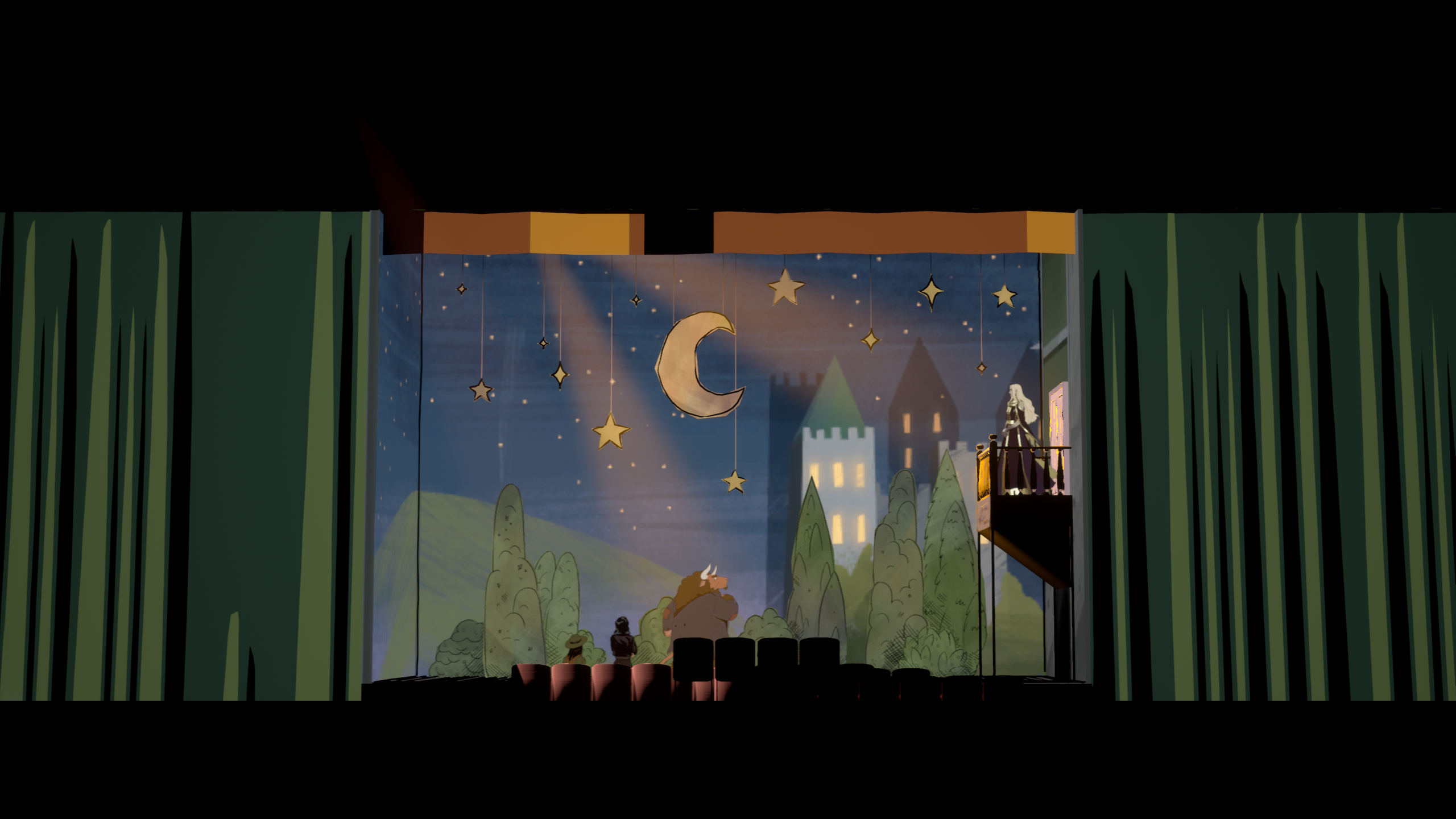
While all three of these tones can be chosen freely during song, they can be utilised during spoken dialogue as well. This part gets locked behind a certain personality type that can be chosen at the start of the game, which enables certain special dialogue options during conversation. It was a nice touch, but I couldn't help but feel like I'd chosen the worst of the three. Other personality-driven choices often felt more fitting, and I wasn't given a chance to add another personality type to my repertoire until halfway through the game.
I really enjoyed most of the songs, particularly the first song and one where I help the love-struck (and tone deaf) minotaur Asterion confess his feelings to the towering Hecate. Rahul Kohli's performance as Asterion is spectacular, and Laura Bailey's buttery-smooth voice uplifts every single song, somehow excelling in every style presented to her as Grace.
Keep up to date with the most important stories and the best deals, as picked by the PC Gamer team.
A bit pitchy
My biggest problem with Stray Gods' soundtrack is the freedom of choice leads to little musical cohesion. There's hardly a throughline or leitmotif across its soundtrack, and a wide experimentation with different styles leads to little memorable consistency. There are a few callbacks and the final song tries its best to pull from previous tracks, but after several hours with the game I struggle to recall many of the lyrics or melodies I heard.
It's not the only time Stray Gods suffers from inconsistency, either. For a game so heavily rooted in its sound, it feels like little attention has been paid to audio mixing. It's especially prevalent in spoken dialogue scenes, with no two characters ever seemingly matching each other's levels. I was having to turn my volume up and down throughout scenes, lest I have my eardrums blasted out by Pan's considerably louder voice lines or miss out on hearing Calliope's soft-spoken dialogue. Everybody delivers their lines beautifully with some top-notch voice acting, but the variation in sound levels kept bringing me out of the experience.
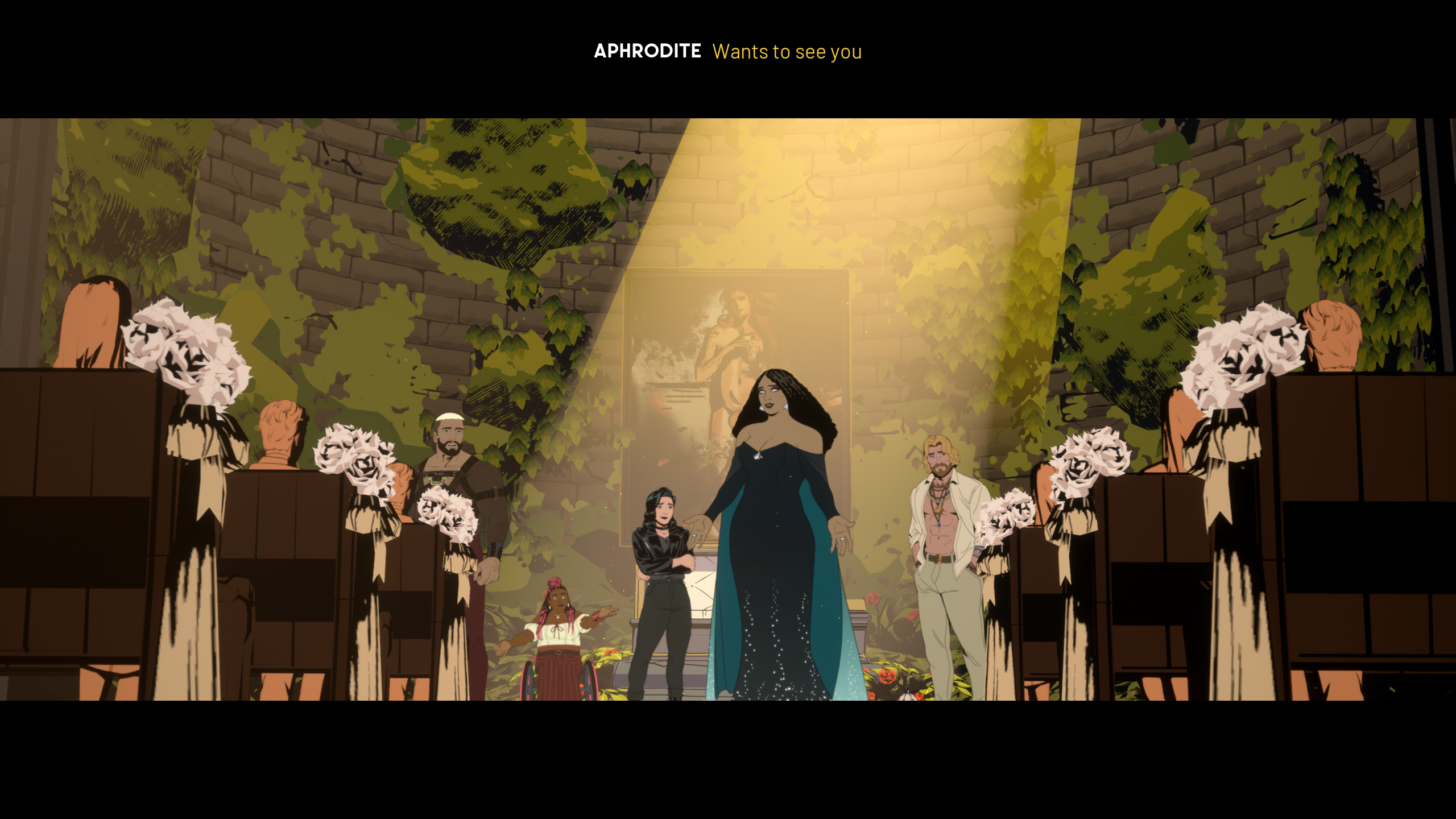
The game's gorgeous comic book art style also appears to fluctuate throughout. Grace's design is great and comes with tons of super expressive illustrations—some particularly gut-wrenching moments in the story are punctuated by how excellently she's drawn. A moment in the game where she's on the brink of tears had me pulling the same devastated expression. Environments like her shared apartment with best pal/love interest Freddie or the gods' Olympus office look like they've jumped from a glossy graphic novel to my monitor. For the most part, Stray Gods looks bloody lovely.
Other characters look remarkably flat in comparison though, almost out of place with the rest of the game's artistic vision. It feels most noticeable on folks like Asterion and Aphrodite, sticking out when surrounded by their gorgeously illustrated companions.
It's certainly frustrating, but when everything is at the quality I know Summerfall Studios is capable of achieving, it's beautiful to watch. Many of Stray Gods' cutscenes and musical numbers are wonderfully crafted, each still image a joy to soak in. The writing is witty and feels relatable, taking these grand Greek gods and turning them into flawed humans who are all carrying their own trauma.
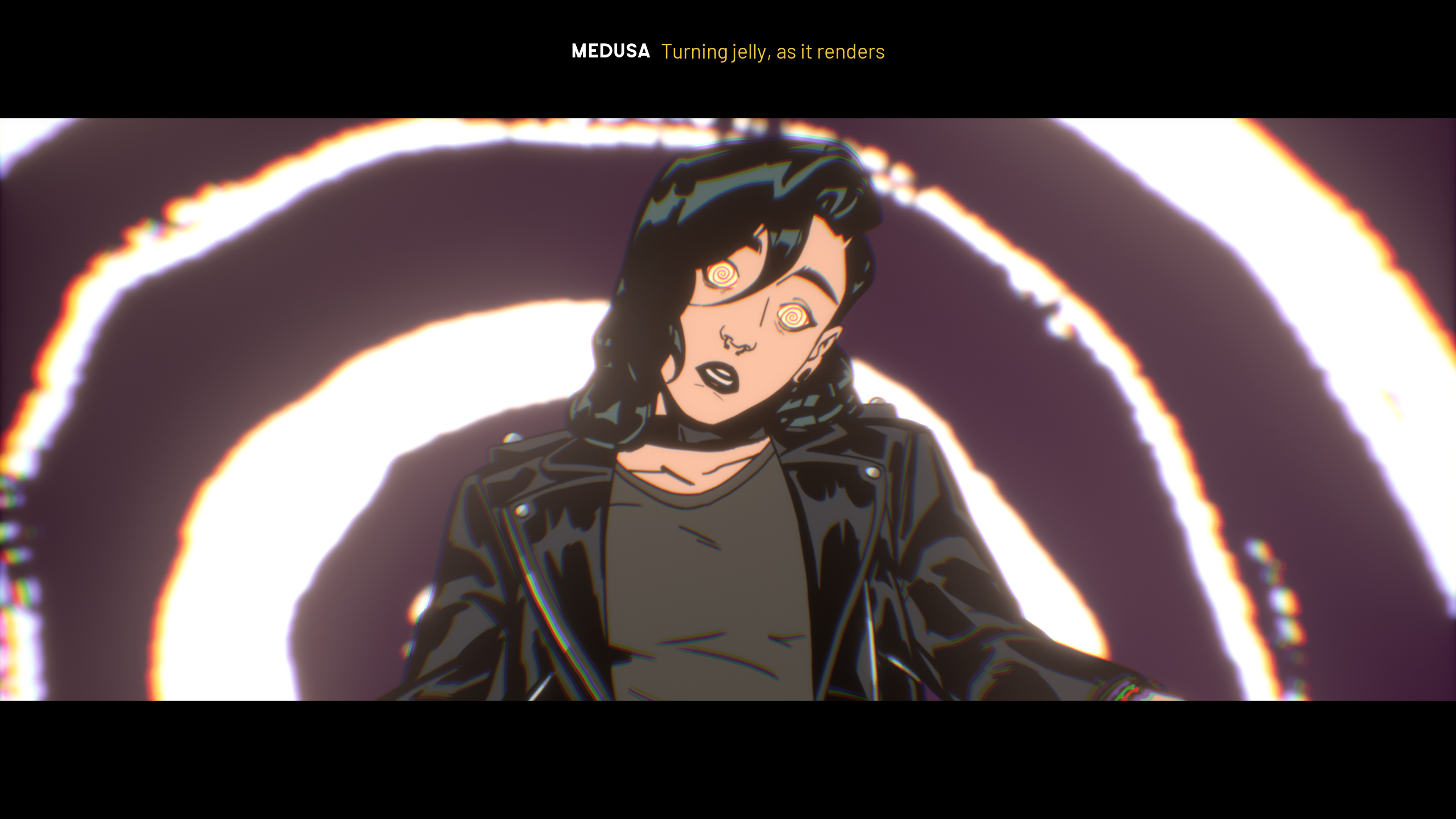
Every choice feels completely distinct, too. I especially appreciated that nothing ever felt too black-and-white, no choice morally superior. It means that some of Stray Gods' more narrative-swaying moments generate some genuinely tough decisions, and I'm already excited to go back and do things differently to see what would happen instead. I'm normally a heavy dialogue skipper but I was mostly happy to sit there and soak every word, even combing through every optional path just to learn more about the game's world.
Be warned though that if you're wanting to skip dialogue, it's another thing that's oddly inconsistent in Stray Gods. Sometimes hitting the skip dialogue key would speed ahead to the next line, as I expected. Other times it would cut out entire chunks of dialogue between characters, skipping over important story beats. I'm not quite sure if it's working as intended, but it made me hesitant to do any skim-reading and utilise the skip dialogue function as a result.
It's a shame that Stray Gods has these rough edges, because it's a wonderfully unique experience full of heart. It just needs a little more cleanup, some focus dedicated to its sound mixing and perhaps a touch more attention to a few of its cast members to really shine. If you can look beyond a slightly erratic presentation, you'll find one of the most endearing visual novels that's released in the last few years.
A genuinely thrilling, occasionally heartbreaking tale that shines a new light on well-known Greek gods. The musical aspect makes it one of the most unique visual novels you'll play, but its inconsistency in quality lets it down.

Mollie spent her early childhood deeply invested in games like Killer Instinct, Toontown and Audition Online, which continue to form the pillars of her personality today. She joined PC Gamer in 2020 as a news writer and now lends her expertise to write a wealth of features, guides and reviews with a dash of chaos. She can often be found causing mischief in Final Fantasy 14, using those experiences to write neat things about her favourite MMO. When she's not staring at her bunny girl she can be found sweating out rhythm games, pretending to be good at fighting games or spending far too much money at her local arcade.
